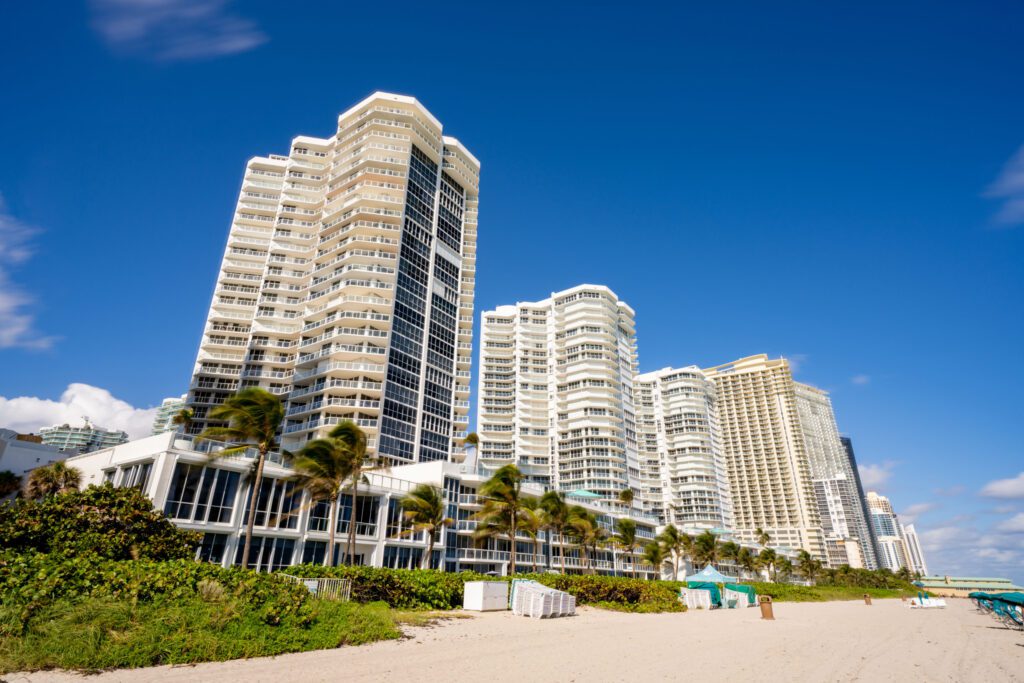South Florida Condo Market Faces Sharp Decline Amid Rising HOA Fees and Stricter Building Laws
The South Florida condo market is experiencing a significant downturn as condo sales in Miami-Dade, Broward, and Palm Beach counties plunged dramatically in April. This trend reflects growing buyer caution related to increasing homeowner association (HOA) fees, escalating costs for maintaining aging buildings, and overarching economic uncertainties in the U.S.
Why the South Florida Condo Market Is Struggling
The surge in condo inventory in South Florida started months prior to December 31, 2024, the deadline for an essential building safety inspection mandated by new Florida condo regulations. This legislation emerged in response to the 2021 Surfside condo collapse that tragically claimed 98 lives at Champlain Tower South.
Key Regulatory Changes Impacting the Market:
- Condo associations must maintain adequate reserve funds for repairs and upkeep.
- A mandatory decennial structural integrity survey is now required.
- Failure to comply can jeopardize financing options and marketability.
While intended to enhance building safety and prevent further tragedies, the new law has inadvertently increased costs for condo owners and associations. Many owners rushed to sell before hefty HOA fee hikes, but the influx of listings resulted in a saturated market with few active buyers.
Current Market Data: Declining Sales and Prices
According to the Miami Association of Realtors:
- Miami-Dade County: Condo sales fell by 21.3% year-over-year in April.
- Broward County: Sales dropped by 19.2%.
- Palm Beach County: Sales declined by 14.4%.
Meanwhile, condo inventory levels have surged, intensifying competition among sellers.
Price Trends:
- Condominium prices in South Florida declined by over 17%, reflecting nearly a year of continuous monthly drops.
- Miami-Dade condo prices edged up slightly by 0.2% year-over-year.
- Prices in Broward and Palm Beach counties decreased by 0.9% and 5.9%, respectively.
- Single-family homes in the region have seen sustained price increases, partly because their inventory remains limited relative to pre-pandemic levels.
Who Is More Affected? Affordable vs. Luxury Condos
The market is notably polarized:
- Luxury condos (priced above $1 million) have maintained relatively stable sales, often with all-cash buyers—up to 80% of transactions.
- Affordable condos (priced below $1 million) face steeper declines, hampered by rising HOA fees, assessments, and financing challenges.
“Higher homeowner association fees, assessments, and financing costs are disproportionately impacting lower-priced condos, which tend to be older and must comply with the decennial certification,” says Juan Arias, director of market analytics at Homes.com.
Financing Challenges Due to Building Inspection Compliance
An alarming issue restrictive to the market is the financing hurdles linked to the inspection status of condos:
- Less than half of South Florida’s condos met the structural inspection deadline by the end of last year.
- Non-compliant buildings are frequently added to a Fannie Mae blacklist, barring buyers from obtaining affordable loans.
- About 50% of transactions for affordable condos rely on such financing, compared to 20% for luxury units.
This problem forces many buyers toward higher-cost or alternative financing methods, constraining demand further.
Realtor Alexei Morgado highlights the situation:
“The condo market is in the midst of a perfect storm. Over 1,400 condos in Florida are now ineligible for standard loans, pushing buyers toward non-QM loans with more onerous terms.”
The Broader Economic Impact on the South Florida Condo Market
The downward trend in condo sales aligns with national real estate patterns affected by:
- Historically high mortgage interest rates.
- Persistent housing affordability issues.
- Fears of a potential economic recession.
As noted by Miami Realtors’ Chief Economist Gay Cororaton,
“We’re witnessing a highly polarized market — strong activity in lower price tiers affordable to many buyers and in high-end markets dominated by cash buyers.”
Upcoming Legislation Offers Some Hope but Challenges Remain
In response to the crisis, Florida lawmakers passed HB 913, currently awaiting Governor Ron DeSantis’ approval. This bill aims to:
- Extend the deadline for the required milestone inspections and structural reports by one year.
- Provide additional time for condo associations to accumulate repair reserves and comply with the law.
- Introduce new financing solutions enabling HOAs to proceed with necessary projects.
According to Juan Arias,
“While this bill is a step in the right direction, it’s unlikely to reverse current pricing trends significantly due to persistent headwinds like rising HOA costs and slow employment gains.”
Future extensions to inspection deadlines are expected to be limited, as legislators balance owner protections with public safety concerns.
What This Means for Condo Owners and Buyers
For Condo Owners:
- Prepare for higher HOA fees and special assessments to meet regulatory demands.
- Delays in inspections and repairs may reduce resale value and complicate financing.
- Keep informed on legislative developments and plan finances for potential costs.
For Buyers:
- Investigate the inspection and financing status of condos before purchasing.
- Understand the risks linked to older buildings undergoing mandatory certifications.
- Consider cash purchases or alternative financing if interested in affected condos.
Conclusion: Navigating South Florida’s Condo Market in a Time of Transition
South Florida’s condo market faces unique and evolving challenges shaped by building safety legislation, aging infrastructure, and broader economic factors. Both buyers and sellers must navigate a landscape marked by increased costs, regulatory hurdles, and financing limitations.
For further insights on Florida real estate trends and safety regulations, visit Miami Association of Realtors and Florida Department of Business and Professional Regulation.
Image Credit: Residential condominiums in Sunny Isles Beach, Florida (Getty Images).
Stay informed and evaluate all factors carefully before engaging in South Florida’s condominium market.


